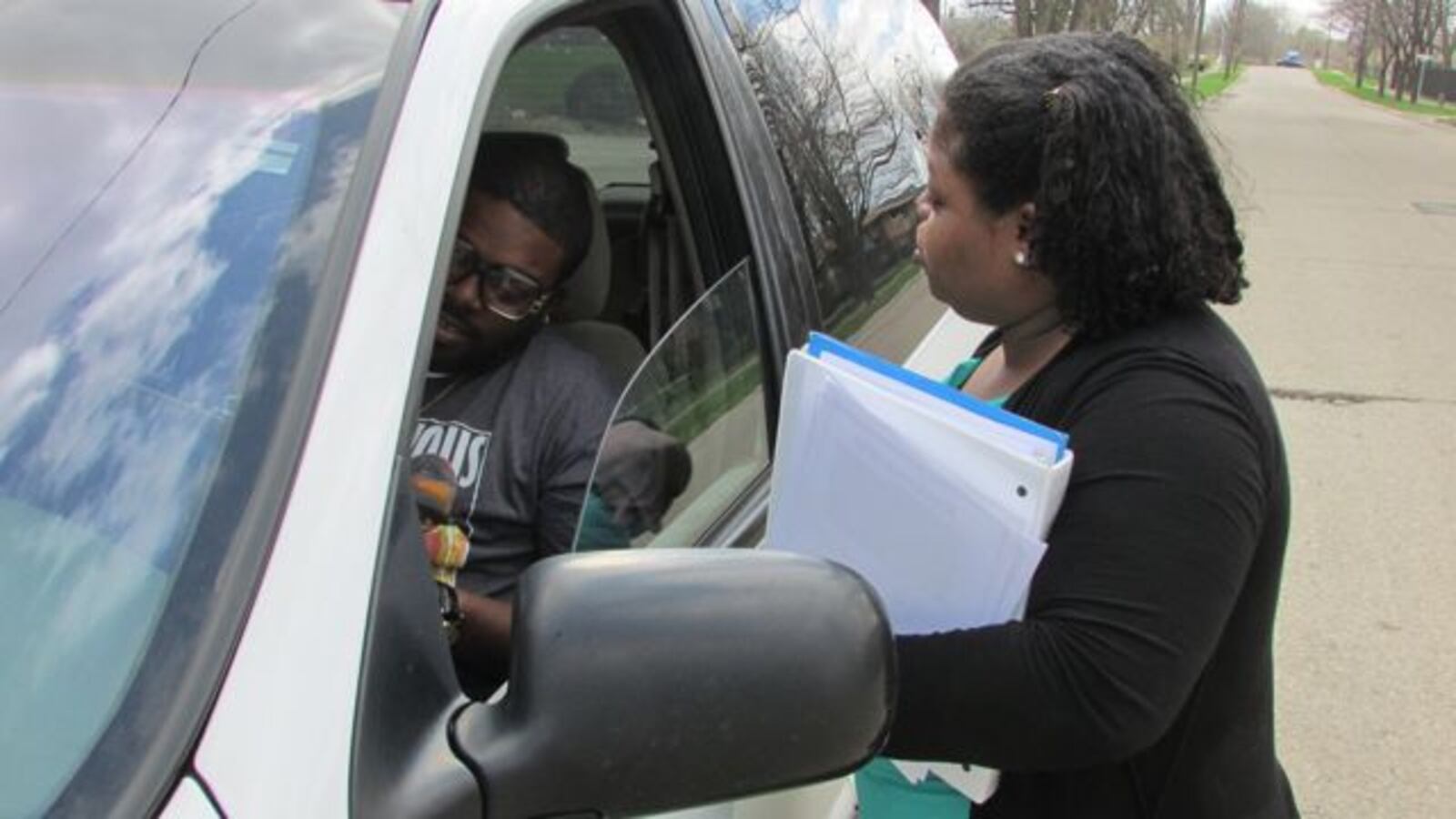Parents, teachers and activists who have pushed for an overhaul of School 93 are calling on Indianapolis Public Schools and its teachers union to resolve a disagreement they say is threatening their plan to improve the school.
“It’s very alarming for me, said Eugenia Murry, mother of three children who attend the school. “I’m unsure if it’s the union or the school board. We’ve tried to get clarity and been unsuccessful.”
More than 200 parents at School 93 signed petitions in April calling for IPS to expand Project Restore, a school reform model invented by two School 99 teachers that focuses on consistent discipline, frequent testing and regrouping of students and rewards to create incentives for students to raise their test scores.
But union leaders have balked at IPS’s plan to hike the pay of those teachers — Tammy Laughner and Dan Kriech — for performing administrative duties while leaving them on the teacher pay scale. In fairness to other teachers at their experience level, union President Rhondalyn Cornett said, IPS should officially redefine the jobs Laughner and Kriech hold if they want to pay them extra for supervisory duties.
“If that’s what the district thinks they should do, then need to make them administrators,” she said.
District officials say that’s not how Project Restore is set up.
“Restore partners will collaborate with the principal to implement the model within the school; thus they will not be classified as administrators,” IPS spokeswoman Kristin Cutler said. “Principals at all schools report to academic improvement officers. The administration does not comment on salary specifics for individuals.”
Teacher Kevin Ludwig, who helped organize the push for Project Restore, said he is afraid the debate over the proper role for Laughner and Kriech will delay a decision again. The first request to consider Project Restore for School 93 came a year ago, so it was already pushed back once, he said citing the district’s own list of top priorities, or “cultural imperatives,” on display in each school.
“Everybody wants it,” Ludwig said. “We know we need to make changes. We want to do the right thing and turn this place around. I see the union’s point but it is also frustrating. We need to remember our No. 1 cultural imperative: Children come first.”
School 93 was rated an F last year and is on IPS’s list of most troubled schools because of low test scores with minimal student gains. Cornett emphasized that the union has no objection to the plan for School 93 to use Project Restore.
But the union’s critics are skeptical.
“You can’t be for Restore going to School 93, then turnaround and block a key step allowing replication to happen,” said Justin Ohlemiller, executive director of Stand For Children, which helped School 93 parents coordinate their efforts to seek Project Restore. “If an organization committed to representing teachers can’t find a way to approve a raise for two great educators, who have a clear track record of success, then there’s something fundamentally wrong with the system.”
A potential option, if the district and union cannot resolve their differences, could be for IPS to utilize a new state law that allows it to forge agreements with outside groups to operate some of its low-scoring schools independently with authority that is similar to that of charter schools. Under those arrangements, which IPS has not yet tried, the outside group employs the teachers and does not have to follow union rules. The union strongly objected to the legislation that created that avenue for reforming IPS schools.
But pursuing that sort of agreement could delay Project Restore at School 93 for another year and likely require Laughner and Kreich to leave IPS and create an outside organization.
Project Restore began in 2009 when Laughner and Kriech persuaded their fellow teachers at School 99 to follow their program. School 99’s grade jumped from an F to an A in three years. The program was expanded last year to School 88 with the same effect, but this time the school went from F to A in a single year.
There is precedent for the idea of promoting Laughner and Kriech. Another of IPS’s most successful school models, the Centers for Inquiry, also started as one school and now has expanded to three. The leader of that program, Chris Collier, holds a full-time administrative post overseeing the three schools.
Murry said it’s been difficult for parents to understand where the Project Restore plan for School 93 stands. She said she plans to attend tonight’s IPS school board meeting to seek answers from board members and Superintendent Lewis Ferebee individually. Parents have also discussed holding a press conference or showing up in force at an upcoming board meeting to protest the delay in approving Project Restore.
“We’re not behind the scenes,” Murry said. “They keep telling us it’s a collaborative effort but it doesn’t seem that way.”


